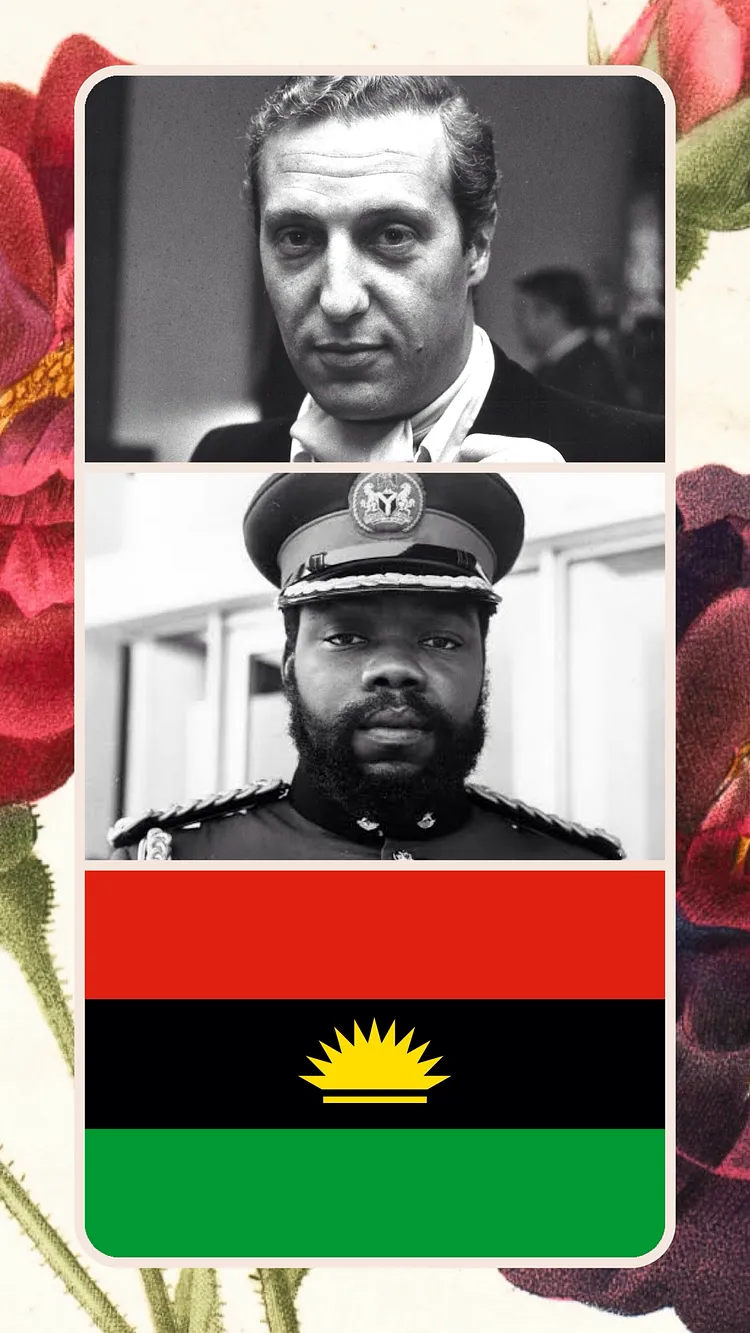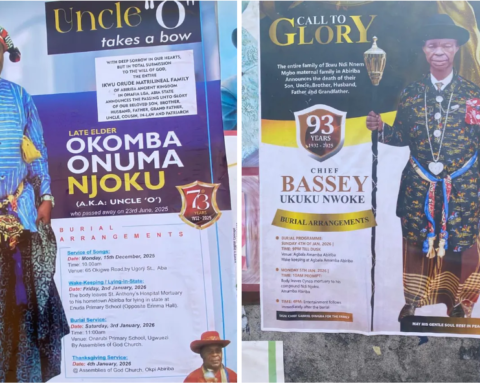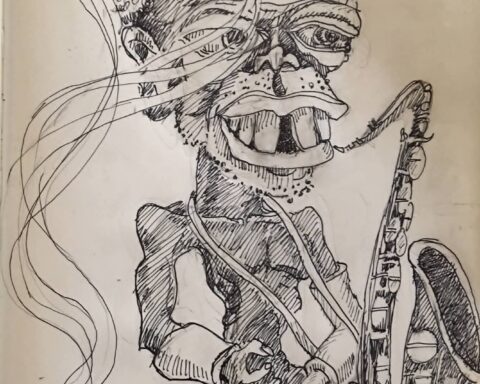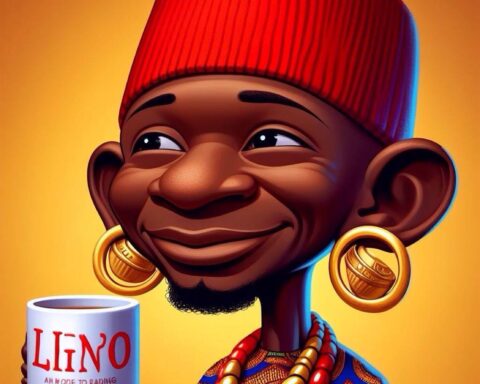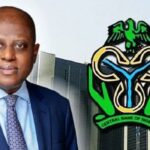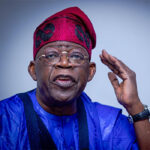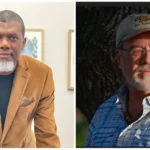By Agbeze Ireke Kalu Onuma, AI-KO
The Uneasy Inheritance – Confronting Forsyth’s Ghost in the Ruins of Memory: A Eulogy, Investigation, and Historical Reckoning
The news of Frederick Forsyth’s death on the 9th of June 2025 reached me like it did everyone else. But for days, I moved through a fog of half-formed grief and profound disquiet. Here was a writer whose novels had been my companions in the grim backdrops of Soviet Union, as an undergraduate – dog-eared copies of The Day of the Jackal, The Odessa File, The Dogs of War, The Devil’s Alternative, The Fourth Protocol, The Fist of God and Icon passed hand-to-hand like contraband. The Afghan, which I read much more later after my Soviet Sojourn was read with apt attention having lived through the bizarre period of the Soviet Afghan war. In those pages, I found not just escapism but a blueprint for navigating absurdity: the cool precision of his prose, the meticulous unraveling of chaos, the unflappable protagonists who outmaneuvered monolithic systems. Forsyth was a literary lifeline when the Soviet state’s lies curdled the air – especially The Afghan, which I read not as thriller but as requiem. I had lived that war’s aftershocks: the furtive tears of mothers receiving zinc coffins, the hollow-eyed veterans shuffling through metro stations, the way even censored newsreels couldn’t hide the stench of imperial hubris. His words gave shape to our silenced rage.
But The Biafra Story was different. It unearthed fragments of my own buried past. I was a child when the war raged – small enough to be tied to my mother’s back as she fled shelling, old enough to sense the dread when elders huddled in moonlit forests, voices dropping to whispers at the approach of soldiers. I remember the taste of Pap thinned to transparency, the swollen bellies of playmates, the way laughter died when aircraft droned overhead. Forsyth’s account wasn’t just reportage; it was a key to a locked room in my memory. His descriptions of bombed markets in Aba, the skeletal children of Umuahia, the defiant broadcasts of “Radio Biafra” – these weren’t abstractions. They were snapshots from a family album scorched at the edges.
When the eulogies poured in – first the polished obituaries, then the WhatsApp avalanches from people who’d never read his books – I remained mute. Something curdled in me. Then came Professor Anueyiagu’s eloquent tribute, praising Forsyth which on first read, felt like a beautifully wrapped empty box [more of that below]. Where was the reckoning with the other Forsyth? The one who’d casually confessed in his autobiography to being MI6’s “eyes and ears” in Ojukwu’s inner sanctum? The contradiction gnawed: How could the man who gave us our testimony also betray its subjects?
Marxism taught me to dissect such contradictions. Forsyth’s duality isn’t personal failing but systemic symptom. He was a product of empire – Sandhurst-trained, steeped in the realpolitik of a dying British imperium. His “laid-back ability to untie difficult situations” (The Jackal’s surgical strikes, The Afghan’s cynical games) mirrored the very colonial mindset that birthed Biafra’s agony. In Igbo cosmology, we speak of nso ani – abominations that disrupt cosmic balance. Forsyth’s spying was nso ani disguised as pragmatism. He documented Igbo resilience while subtly serving the machinery designed to crush it. His intelligence, however “non-military,” fortified Britain’s strategy: arm Nigeria, deny the genocide, starve Biafra into submission. Under Marxism, this is alienated labor – his pen, weaponized by capital (Shell’s oil, Britain’s arms trade), turned against the oppressed it claimed to champion.
His death ignited a torrent of tributes across Igbo social media groups and platforms, celebrating him as an unsung hero of Biafra. This adoration stems overwhelmingly from The Biafra Story (1969), his blistering account of Nigeria’s brutal suppression of Igbo secession, which exposed famine-induced child deaths and Western complicity. Forsyth’s frontline reporting gave the Biafran cause global visibility, shattering Britain’s narrative of a “quick police action” and forcing parliamentary debates about starvation . Yet beneath this lionized image lay a darker truth: Forsyth’s voluntary role as an MI6 informant during the same conflict. His admission in his autobiography The Outsider (2015) that he passed intelligence to Britain – Nigeria’s chief arms supplier – frames a profound moral paradox. How could a man who risked his life to document Biafra’s suffering simultaneously feed secrets to a government enabling that suffering? The answer lies in the murky intersection of Cold War realpolitik, journalistic ambition, and the tragic betrayal of Colonel Chukwuemeka Ojukwu’s trust .
Forsyth arrived in Biafra in 1967 as a BBC correspondent, briefed by Foreign Office-aligned officials who dismissed the secession as a fleeting rebellion. Within days, he witnessed federal Nigeria’s Soviet-bombed villages and mass graves of Igbo civilians – evidence contradicting Britain’s portrayal of a “harmonious Nigeria.” When the BBC recalled him after six months, declaring coverage “not our policy,” Forsyth detected Whitehall’s hand. “I smelt news management,” he wrote. “I quit and flew back [to Biafra]” as a freelancer . This act cemented his legend among Igbos. Ojukwu, the Oxford-educated Biafran leader, welcomed him into his inner circle, roaring with laughter at Forsyth’s BBC defiance. Their rapport granted Forsyth unprecedented access: he documented kwashiorkor-swollen children, cataloged arms shortages, and chronicled the ingenuity of the clandestine night flights that delivered aid to starving civilians
Forsyth’s 2015 revelation that an MI6 officer named “Ronnie” recruited him in 1968 casts this period in sinister relief. Casting himself as an unpaid “courier,” Forsyth claimed he shared non-military intelligence: humanitarian conditions, political fractures, and Ojukwu’s psyche. “I saw no harm in confirming children were dying like flies,” he later rationalized, insisting his actions countered Foreign Office denials of famine . Yet context indicts him. Britain supplied 80% of Nigeria’s arms, including aircraft bombing Biafran villages. MI6’s interest aligned with protecting Shell-BP oil assets in the Niger Delta – resources Biafra controlled. When Ojukwu reportedly learned of Forsyth’s MI6 ties, the betrayal “almost killed him” . Crucially, Forsyth’s intelligence arrived as Nigeria intensified its blockade in 1968 – 69, weaponizing starvation. Even if Forsyth never leaked battle plans, his proximity to Ojukwu gave Britain psychological leverage: understanding Biafran morale vulnerabilities and supply routes was invaluable to a regime seeking Biafra’s collapse without global condemnation .
Forsyth mined his Biafra experience for commercial gain, transforming humanitarian catastrophe into gripping fiction. The Dogs of War (1974) – inspired by mercenaries he met in Biafra – laid bare Western resource plunder in Africa. Its plot, where a British executive hires soldiers to overthrow a government for platinum, echoed rumors of Forsyth’s own aborted 1972 coup attempt in Equatorial Guinea . While The Biafra Story remained a sacred text for Igbos, its partisan fervor drew criticism. Novelist William Boyd deemed it “a rose-tinted account of plucky little Biafra,” ignoring Ojukwu’s “megalomania” and the secession’s futility . Forsyth’s duality peaked in his 2020 Guardian essay condemning Britain’s “sheer nastiness” while sidestepping his complicity. His lament that Biafra is “little discussed in the UK” ignored how his thrillers aestheticized suffering he’d witnessed .
Ojukwu’s relationship with Forsyth epitomized the betrayal of Igbo aspirations by Western institutions. Educated at Eton and Oxford, trained at Sandhurst, Ojukwu embodied the “civilized African” Britain claimed to champion. Yet when he sought justice for pogroms that killed 30,000 Igbos, Britain armed his annihilation. Forsyth – another Sandhurst product – became the perfect instrument of this hypocrisy: the charming chronicler who documented Igbo resilience while possibly undermining it. Ojukwu’s postwar exile and eventual return to a Nigeria still marginalizing Igbos underscored the futility of trusting colonial masters. As one Igbo elder lamented, “We were forced into this unholy marriage”.
His 1991 biography Emeka stands as a towering, yet deeply conflicted, monument to his friendship with Chukwuemeka Ojukwu. Written with Ojukwu’s full cooperation in the aftermath of his return from exile, the book pulses with an almost reverential intimacy – a chronicle of the Biafran leader as tragic hero, penned by the man who shared his bunkers and cigars. Forsyth crafts Ojukwu as a figure of Shakespearean dimensions: the Eton-and-Oxford-educated aristocrat who spurned his billionaire father Sir Louis Odumegwu Ojukwu’s empire to scrub latrines as a lowly Nigerian Army private; the reluctant secessionist pushed into rebellion only by the visceral horror of the 1966 pogroms that slaughtered 30,000 Igbos; the principled exile who, rather than plotting revenge, took out bank loans to start a modest trucking business in Côte d’Ivoire. This portrait, burnished with Forsyth’s thriller-writer flair, cemented Ojukwu’s saintly martyrdom in the Igbo imagination, transforming the book into a sacred text. Yet, read against the grain of Forsyth’s own later confession and the unspoken shadows between its lines, Emeka reveals itself as a masterpiece of strategic omission – a biography that venerates its subject while silently burying the author’s own act of betrayal.
For me the dissonance lies in what Forsyth doesn’t say. Nowhere in this exhaustive account of the war years, detailing Ojukwu’s strategies, despair, and moments of dark humour, does the name “Ronnie” appear – the MI6 officer who, Forsyth admitted in 2015, recruited him as an unpaid “courier” deep within Ojukwu’s inner sanctum. Forsyth frames his extraordinary access solely as journalistic privilege, a testament to Ojukwu’s trust. He meticulously documents the agonies of the Nigerian blockade – the skeletal children, the bombed hospitals, the desperate ingenuity of survival – yet remains ambivalent on Britain’s role as the primary arms supplier enabling that very siege, the supplier of the aircraft that dropped the bombs he so vividly described.
Most hauntingly absent is any hint of the shattering moment Ojukwu reportedly discovered Forsyth’s dual role, a revelation that sources close to the Biafran leader claimed “almost killed him.” The friendship preserved in Emeka’s pages feels pristine, untainted, a bond forged in defiance of the world. Yet this pristine image is built on the erasure of the very breach that poisoned it. Forsyth, the master storyteller, crafted a compelling narrative of loyalty, obscuring the uncomfortable reality of his service to the state arming Ojukwu’s enemies.
This curation served Forsyth’s own burgeoning mythos. By 1991, he was the globe-trotting author whose novels like The Dogs of War (inspired by mercenaries met in Biafra) exposed the cynical machinations of Western power and resource plunder in Africa. Emeka, in this context, became another pillar of his persona: the intimate chronicler of noble resistance against tyranny. Yet, this very framing exposes the colonial paternalism lurking beneath his admiration. His declaration that Ojukwu possessed qualities “that set him aside… among other Africans” drips with the condescension of the colonial gaze, reducing a complex anti-colonial struggle to a tale of one exceptional man battling a corrupt system. He sang Ojukwu’s praises while painting Nigeria with broad strokes of disdain, rendering a brutal, multifaceted conflict into a simplistic moral fable where the “civilized” rebel faced down barbaric oppressors.
Emeka inadvertently becomes a lens through which to trace the tortured evolution of Biafranism itself. Forsyth captures its 1967–1970 essence as survival humanism – a desperate response to existential threat, articulated by Ojukwu as self-determination born from the ashes of pogroms. Forsyth, however, simplifies this into a David vs. Goliath narrative. His account of Ojukwu’s exile years hints at the transformation into diasporic trauma – a cause kept alive in Igbo communities scattered from Houston to London, fueled by the unacknowledged genocide and systemic marginalisation within Nigeria, a reality Ojukwu navigated in silence upon his return.
Today’s manifestations of Biafranism, embodied in movements like MASSOB, IPOB (#FreeNnamdiKanu), represent a further evolution. They harness the potent imagery Forsyth helped globalize – the suffering, the resilience – but channel it into a digital-age sovereignty movement. Scholar Samuel Daly notes this neo-Biafranism often seeks an “African Israel,” defined by self-sufficiency and fierce cultural assertion, actively rejecting the white-saviour validation that Forsyth, perhaps unintentionally, embodied. The WhatsApp eulogies lauding Forsyth as a hero ironically recycle his “plucky little Biafra” trope, even as the movement’s contemporary leaders strive to move beyond it.
For most Igbo intellectuals working and writing about Biafra, Emeka remains invaluable. It preserved Ojukwu’s voice and dignity at a time when the Nigerian state actively sought to erase him. Yet, the biography’s profound silences mirror the very “deliberate paramnesia” Anueyiagu condemns in postwar Nigeria. Forsyth commodified Ojukwu into a compelling, almost thriller-like character – the noble rebel – while obscuring the uncomfortable truth of his own role within the imperial system that groomed and then shattered that rebel. In centering himself as the essential witness, Forsyth risked obscuring the vast tapestry of Igbo resilience: the doctors improvising salt substitutes, the mothers foraging cassava under shellfire, the poets like Christopher Okigbo and Chinua Achebe weaving resistance into literature. Emeka subtly perpetuates the insidious lie that Biafra’s truth required white validation to be heard.
The ultimate source of the “sour taste” Anueyiagu senses is Forsyth’s own, belatedly spoken truth: “With neutrality from London, it could all have been avoided.” This statement, made in The Guardian in 2020, is a stark confession of British complicity uttered by a man who knew, intimately, the mechanics of that complicity because he had, however informally, lubricated them. No amount of saint-making in Emeka can bleach this stain. Forsyth’s biography haunts because it encapsulates Biafra’s unresolved paradox: a testament of friendship and admiration penned by a man who was also, irrevocably, an asset of the machine that crushed his friend’s dream. Its enduring power lies not in its historical completeness, but as a stark relic of how empires co-opt even those who claim to chronicle their crimes.
For the living dream of Biafranism, Forsyth’s legacy is a chilling caution: liberation cannot be outsourced to chroniclers bearing MI6 contacts. The ghosts of Biafra – Ojukwu’s betrayed trust, the starved children Forsyth photographed, the whispering elders – demand we wield his contradictions not as comfort, but as a scalpel. That lingering sourness on the tongue? It’s the indelible tang of blood mixed with powdered milk relief supplies, the taste of ink from a pen that documented genocide while dipped, however partially, in its very inkwell. Forsyth gave Biafra its most powerful early narrative, a gift Ndigbo are forever greatful, yet one shadowed by the hand that also, quietly, fed the beast.
Biafra isn’t just a place on an old map, or a short-lived nation that fought for independence from Nigeria between 1967 and 1970. It’s a powerful idea born from immense suffering and a fierce will to survive. Its story starts with terrifying violence – the 1966 pogroms where thousands of Igbo people were killed across northern Nigeria simply for who they were. Faced with this horror and feeling abandoned by the Nigerian state, the southeastern region, led by Colonel Chukwuemeka Odumegwu Ojukwu, made the desperate choice to declare itself the Republic of Biafra. This sparked a brutal civil war. Nigeria, backed heavily by Britain, imposed a crushing blockade. Images of starving children with swollen bellies shocked the world, but the war raged on, fueled by old colonial divisions and the discovery of oil in the region. Biafra’s eventual defeat didn’t end the story; it left deep scars, unhealed wounds, and a sense of injustice among the Igbo people. This is the painful root of Biafranism – the enduring belief in the right of the Igbo and other southeaster minority groups to determine their own fate, to live safely, and to be treated fairly.
Biafranism Today looks different, but the fire still burns. It’s no longer just about the memories of that terrible war. Movements like the Movement for the Actualization of the Sovereign State of Biafra. (MASSOB), the Indigenous People of Biafra (IPOB), led by figures like Nnamdi Kanu, have brought Biafranism back into the spotlight. They use modern tools – social media, international human rights language, and global diaspora networks – to demand recognition and justice. Their message resonates deeply, especially among young people in the southeast who feel left behind. They see their homeland suffering from neglected roads and bridges, a lack of investment, and feeling like they don’t have a real voice in Nigerian politics. The Nigerian government’s response – banning IPOB, arresting Kanu, and sometimes using heavy force against peaceful protesters – has only made tensions worse and strengthened the movement for many. While Biafranism unites many around shared grievances, it’s not without its own internal debates and faces skepticism from other groups in Nigeria worried about the country breaking apart.
What Tomorrow holds for Biafra and Biafranism is uncertain, hanging heavily over Nigeria’s future. One path is frighteningly clear: if the Nigerian government keeps ignoring the deep-rooted problems of neglect and marginalization, and answers calls for fairness with only soldiers and jail cells, it risks pushing a new generation towards more radical solutions. The pain and the dream won’t just disappear. But there is another path, though it requires courage and honesty. Real dialogue is needed – talking about changing the constitution to share power and resources more fairly (fiscal federalism), or even establishing a truth commission to finally acknowledge the horrors of the past and the present inequalities. Can Nigeria find a way to genuinely include the Igbo people and address their legitimate concerns within one nation? Or will the pressure for separation continue to grow? The world is watching, and the powerful Igbo communities living abroad, connected digitally like never before, will keep this struggle visible, even if foreign governments remain hesitant about supporting a divided Nigeria.
Ultimately, Biafra’s story is woven into the very fabric of Nigeria, a constant reminder of its deepest struggle: can a nation made up of so many different peoples truly become one, while respecting each group’s right to safety, dignity, and a fair share of the future? The persistence of Biafranism shouts that the wounds of the past haven’t healed and that the way Nigeria is governed needs to change to include everyone. Whether Biafra becomes a catalyst forcing Nigeria to finally build a just and united country, or remains a painful symbol of division leading to more conflict, depends entirely on choices made today. It stands as both a warning from history and a powerful testament to the unbreakable human spirit that demands the right to determine its own destiny. Ignoring this call only deepens the cracks in the nation’s foundation. Addressing it with genuine justice and inclusion is the only way forward.
Forsyth stands at the crossroads of Biafra’s past and the persistent echo of Biafranism. He was undeniably crucial in defining Biafranism Yesterday. His books, The Biafra Story and later Emeka gave global voice and shape to the Survival Humanism, the moral outrage, and the desperate resilience. He crafted the initial, powerful narrative of David vs. Goliath that seared Biafra into international consciousness. Emeka later solidified the image of Ojukwu as the noble, tragic hero of this cause, a figure central to the Igbo historical memory that fuels modern Biafranism.
Yet Biafranism cannot remain a relic of the past or simply a historical footnote. It must evolve, grow, and find new expressions in the hearts, minds, and works of present-day Igbo artists, scholars, writers, and intellectuals. The torch carried by Achebe and Adichie – who, through literature, reanimated the depth and urgency of Igbo identity and historical consciousness – must now be taken up by a new generation. It is not enough to remember; one must build upon memory, weaving it into fresh narratives that breathe new life into Biafra’s philosophy and humanism.
This call extends beyond political discourse – it is an artistic and intellectual imperative. Through literature, film, music, scholarship, and crafts, Igbo creatives must interrogate, refine, and expand Biafra’s essence. Not as a static idea but as a living, evolving force – a testament to resilience, identity, and self-determination. From poetry that captures ancestral struggles to novels that reimagine Igbo survivalism in contemporary settings, every artistic and intellectual endeavor must contribute to deepening and preserving the philosophical drive of Biafranism.
More is needed. More voices, more stories, more reinterpretations of history and culture that embolden the Igbo spirit. Biafranism, at its core, is an assertion of humanity, dignity, and self-sufficiency. It is a philosophy that must be championed not only in memory but in creation, invention, and intellectual pursuit. The Igbo artist, scholar, and storyteller must not only recount history but actively shape its future, ensuring that the echoes of Biafra do not fade, but instead resound through generations to come.
However, Forsyth documented the genocide while subtly serving the interests of the state enabling it. He became the ultimate symbol of the Western Hypocrisy that is itself a core tenet of Biafranist grievance – the powers that trained Ojukwu, spoke of human rights, and then armed his annihilation while sending chroniclers who might also be spies. This betrayal of Ojukwu’s trust, so carefully airbrushed from Emeka, is the unspoken counterpoint to Forsyth’s hagiography. It embodies the deep, lingering suspicion that the West, even in its sympathies, ultimately serves its own interests.
Forsyth’s connection to Biafranism today and in its future remains fraught with complexity, and as someone deeply invested in this narrative, I see his role through multiple lenses. He is a validator, and I acknowledge that his works continue to serve as vital evidence against genocide denial and historical revisionism. His accounts reinforce the foundational trauma upon which present-day grievances are built, ensuring that the Igbo struggle for recognition is not eroded by the passage of time or by efforts to rewrite history.
Yet, I also recognize him as a cautionary example. His involvement reminds me of the risks inherent in allowing outsiders to frame our liberation narratives. The truth is, for Biafranism to maintain its integrity, it cannot depend on voices that, while sympathetic, may still be entangled in conflicting agendas. That is why I believe it is essential for movements like, MASSOB and IPOB to shape our own story – to refuse the hand of external chroniclers whose affiliations may subtly distort the essence of what we fight for.
And then there is the contradiction, one that I wrestle with. Forsyth mirrors a tension that lies within Biafranism itself – the struggle between the desire for external validation and the need for self-definition. I understand the gratitude for those who spoke on Biafra’s behalf, giving voice to our suffering and resilience. But I also cannot ignore the unsettling truth that not all allies were entirely aligned with our cause. This paradox challenges the future of Biafranism and challenges me personally. It demands that we – those of us who believe in its philosophy and humanism – become the architects of its intellectual and historical legacy.
It is not enough to inherit Biafranism as a memory. We must wield it, shape it, expand it. We must ensure that its essence does not rely on the narratives of outsiders but grows through our own scholarship, literature, and artistic expressions. This is not just a call to remember – it is a call to create, to assert, to ensure that Biafra’s story remains ours to tell.
The Igbo understandable veneration of Forsyth today reflects unresolved trauma. For survivors, his reporting validated their suffering when the world looked away. Yet modern Biafran activists – operating from diaspora hubs like Houston and London – idealize him precisely because most of them never endured the war’s horrors. Neo-Biafranism thrives among youths “unencumbered by actual memories”. WhatsApp eulogies calling Forsyth a “hero” coexist with fierce debates: “Ojukwu never knew he was actually a double,” one former Radio Biafra commenter seethed. This divide mirrors Forsyth’s legacy: he gave Biafra a voice but also symbolized the West’s moral bankruptcy.
Today, as Ndigbo grapple with the unfinished business of Biafra – police brutality in Lagos, Abuja, Kano and other places, political marginalization, the haunting specter of renewed violence – Forsyth’s legacy is a microcosm of our broader trauma. His veneration reveals a painful truth: the colonized often memorialize those who documented their suffering, even when complicit in its cause. Why? Because in the absence of justice, testimony becomes sacred. When your history is erased, you cling to any witness, even a flawed one. Forsyth gave Igbos what their oppressors denied: recognition of their humanity. Yet this very act was poisoned by his collaboration.
Frantz Fanon warned of the “pitfalls of national consciousness” when liberation movements trust the colonizer’s tools. Ojukwu, Eton-educated and Sandhurst-polished, made that fatal error. He saw in Forsyth a kindred spirit – a fellow “outsider” defying his establishment. But Forsyth’s allegiance was always to the Crown, not the cause. When he smiled at Ojukwu’s jokes while noting morale for MI6, he enacted what Marxist theorist Louis Althusser called “interpellation” – the system hailing its subject to fulfill his assigned role.
The excerpt from Okey Anueyiagu’s unpublished essay alluded to above, written in the wake of Frederick Forsyth’s death, pulsates with profound gratitude and unresolved anguish. Anueyiagu – a former Biafran child soldier whose memoir Biafra: The Horrors of War moved Forsyth himself – frames the late author as a “hero of the dying and living people of Biafra,” a man whose courage defied Britain’s complicity in Igbo suffering . Yet beneath this tribute lies a tension Anueyiagu only partially articulates: the “sour taste” of Forsyth’s dual identity as Biafra’s chronicler and MI6 informant. To dissect this paradox, we must confront the brutal dialectics of Forsyth’s legacy – where light and shadow coalesce into a haunting inheritance for those who survived.
Anueyiagu rightly venerates Forsyth’s defiance. When the BBC recalled him in 1967, dismissing his coverage as “not our policy,” Forsyth immediately recognized the mechanisms of censorship – what he called “news management.” Refusing to be silenced, he returned to Biafra as a freelancer, determined to document the war firsthand. His dispatches, later consolidated in The Biafra Story (1969), reverberated globally, shaking the foundations of Britain’s official narrative.
His work humanized catastrophe in ways that could not be ignored. Through his lens, kwashiorkor-swollen children, Soviet-bombed villages, and the daring ingenuity of “Jesus Christ Airlines” – the clandestine night flights delivering hundreds of thousands of tons of aid – became stark realities. These images directly challenged Britain’s portrayal of the conflict as a mere “quick police action,” forcing parliamentary debates on the humanitarian crisis that had been so conveniently sidelined.
For the Igbo people, Forsyth’s book became more than just an account – it was evidentiary ammunition against genocide denial. As Anueyiagu observed, Forsyth ensured that the world could not “conveniently forget” Biafra’s atrocities, echoing the moral commandment of Hebrews 13:3: “Remember those in prison as though you were with them.” His unwavering commitment to truth distinguished him from Britain, which supplied the Nigerian government with nearly 80% of its arms. Unlike his homeland, Forsyth chose to stand with the oppressed, his audacity immortalized in Anueyiagu’s awe: “What gave him the audacity to proclaim truth when Britain lived in LIES?”
Yet for all the reverence afforded to Forsyth, there remains an undeniable irony, one that I cannot overlook. Even as he chronicled Biafra’s agony, he simultaneously operated as an MI6 “courier.” In his 2015 autobiography, The Outsider, he insisted that his role was unofficial, unpaid, and not that of a spy. He maintained that he merely relayed “non-military” intelligence – insights on humanitarian conditions, on Ojukwu’s psyche, on the inner workings of a besieged state. He framed it as Cold War pragmatism, a strategic necessity rather than a betrayal.
But the fracture was real. When Ojukwu discovered Forsyth’s ties to British intelligence, the sense of betrayal was profound – “it almost killed him.” This rupture, which Anueyiagu’s gratitude glosses over, demands recognition. Ojukwu, who had once trusted Forsyth as a confidant, a man with whom he could laugh at British indifference, later came to realize that his trusted ally had been feeding intelligence to the very regime supplying the weapons responsible for Nigeria’s brutal campaign against Biafra.
Herein lies the dialectical complicity that is impossible to ignore. Regardless of Forsyth’s humanitarian intentions, the intelligence he provided inevitably contributed to Britain’s strategic calculus. As USAID director William Haven North noted, Britain’s primary concern was securing its oil interests and preventing a domino effect of secessionist movements across Africa. Forsyth’s access – his proximity to Ojukwu, his knowledge of Biafra’s internal struggles – became a tool within a larger imperial machinery, lubricating the mechanisms that ensured Biafra’s defeat.
And so, as I reflect on Forsyth’s legacy, I am forced to grapple with these contradictions. He was a beacon, a witness, and a voice against injustice. Yet he was also entangled in a system that worked against the very people he defended. His story is one of bold defiance but also of unsettling complicity – a lesson in the complexities of historical narratives, where even the most well-intentioned allies may find themselves woven into the fabric of betrayal. The question remains: how do we acknowledge his contribution without overlooking the contradictions that defined it? For those of us invested in Biafranism’s truth, this reckoning is crucial.
Anueyiagu’s lingering dissatisfaction with Forsyth’s legacy stems from a fundamental contradiction, one that I, too, find difficult to reconcile. Through a Marxist lens, Forsyth embodies alienated labor under imperialism – his work, despite its apparent empathy, ultimately served the interests of capital. The Biafra Story and The Dogs of War, both shaped by Biafran mercenaries and wartime narratives, transformed Igbo suffering into Western bestsellers. In doing so, they concealed Britain’s culpability, reducing a genocide to a marketable tale rather than an indictment of imperial complicity.
Forsyth was not a rogue figure acting beyond the system – he was a product of imperial habitus. Sandhurst-trained and steeped in the realpolitik of Cold War intelligence networks, his collaboration with MI6 was not an aberration but an extension of a broader imperial strategy. This was the same system that once cultivated Ojukwu, elevating him as an acceptable product of elite grooming, only to systematically dismantle him when Biafra’s ambitions conflicted with Britain’s geopolitical interests. As Louis Althusser contended, ideology does not merely exist – it “hails” individuals, assigning them roles within structures of power. Forsyth answered that call, fulfilling an imperial function under the guise of journalistic integrity.
But to elevate Forsyth’s contributions above all else risks erasing the collective sacrifice of the Igbo people. Anueyiagu places him alongside figures such as Bruce Mayrock, who self-immolated for Biafra, and Count von Rosen, who defied diplomatic inertia to fly critical aid missions. Yet Forsyth, despite his defiance, was never truly of Biafra; he was a chronicler, not a participant in the suffering. To frame him as the central figure in Biafran remembrance risks diminishing the agency of Igbo resilience – the doctors who innovated salt substitutes under siege, the mothers who foraged for food amid relentless shelling, the poets like Christopher Okigbo and Chinua Achebe who wove the trauma into lasting literature. Forsyth was a witness, but the Igbo endured.
Anueyiagu is right: “The ghosts of Biafra have gathered… leaving us with violent truth.” But these ghosts demand more than hero-worship. They insist on a reckoning. Forsyth’s work holds meaning only in conjunction with narratives like Anueyiagu’s or Achebe’s “There Was a Country”, texts that expose the deliberate paramnesia enforced by post-war Nigeria – a systemic erasure designed to rewrite history in favor of the victors. The true ghosts are not Forsyth, nor any other outsider, but the one to three million lives lost, deliberately obscured from national memory.
Condemning Forsyth alone is insufficient; the machine that enabled genocide must be held accountable. Britain’s “sheer nastiness” – Forsyth’s own 2020 words – formed the foundation of Biafra’s destruction. To deify Forsyth is to obscure this broader truth, as if the courage of a single journalist absolves an empire of its sins. It does not. His documentation, though important, cannot serve as absolution.
Forsyth’s legacy as a conflicted figure in the Biafran struggle is undeniable. He was both a witness and a participant – one whose actions, though at times sympathetic, ultimately served imperial interests. But even as I grapple with the contradictions of his role, I find myself reflecting on a far graver betrayal: that of our own. Today, within our communities, within our movements, within the very deliberations where we craft visions of True Federalism, self-determination, resource control and dignity, there exist Igbo men and women who masquerade as allies, as leaders, as voices of progress. Yet in truth and reality, they are saboteurs, receptors, and betrayers – performing loyalty in daylight, but feeding destruction in shadows.
These homegrown betrayers move freely among us, sit at the table, nod in agreement as we outline strategies, contribute their voices to discussions on emancipation. Yet behind closed doors, they sell secrets, dismantle efforts, and pave the way for forces that seek to suppress Igbo aspirations. Unlike Forsyth, who at least positioned himself as an outsider with imperial allegiances, these individuals claim ownership of our cause while knowingly undermining it. They do not merely document our struggles for consumption abroad; they actively participate in erasing them. Their actions are far worse – not just because they betray from within, but because they do so in calculated proximity, embedded within the very fabric of our resistance.
Their betrayal echoes through history, resembling the treachery of those who enabled the collapse of movements before us, who brokered false peace deals, who aligned with oppressors for personal gain. They are the ones who speak of unity while pocketing bribes, who wave the banner of Igbo liberation while ensuring its stagnation, who loudly condemn injustice while quietly cooperating with its architects. They are worse than Forsyth, worse than any foreign interloper, because theirs is not a distant betrayal – it is intimate, deliberate, and corrosive. They do not merely weaken the movement; they pollute its core, ensuring that Biafranism is held hostage by compromised hands.
And so, as I invoke the ghosts of Biafra, as I reflect on Forsyth’s complex role, I refuse to let history’s focus rest solely on external betrayal. The real reckoning must happen within. The false prophets of Igbo liberation – the ones who siphon hope and sell it to the highest bidder – must be called out, removed from the spaces they exploit, and held accountable. Because Biafra’s survival does not depend on foreign sympathy or external validation – it depends on purging the rot within, ensuring that our movement is shaped by those whose commitment is unwavering, whose loyalty is beyond question, whose vision is free from the stain of betrayal.
And Nigeria’s reckoning remains painfully incomplete. Germany has constructed Holocaust memorials, Rwanda has forged a fragile unity through acknowledgment of its darkest hours. Yet Nigeria, as Anueyiagu laments, has swept its pogroms under the carpet, refusing acknowledgment, ensuring the cycle continues – breeding today’s ISWAP insurgencies, escalating banditry, perpetuating unchecked violence. Forsyth’s legacy should not be one of blind admiration, but of unfinished justice. Not as a saint, but as evidence of Western hypocrisy, as a reminder that Biafra’s truth requires more than an outsider’s narrative – it demands expiation, remembrance, and action from within.
Anueyiagu’s tribute, laced with both reverence and unease, reflects the wider Igbo condition – a complex interplay of gratitude for visibility and seething resentment at betrayal. Forsyth gave Biafra a voice, but he also embodied the machinery that crushed it. His presence in this history lingers not merely because he was flawed, but because we continue to mistake witnesses for saviors. That lingering sour taste is the residue of misplaced faith – the bitter realization that even those who illuminate the darkness cannot avoid casting shadows of their own. As Anueyiagu poignantly states, “These ghosts must make us look at brutality we wanted to forget.” Forsyth’s paradox remains the most haunting lesson of Biafra’s legacy: in a world governed by imperial deception, a truth-teller with divided loyalties is preferable to silence, yet never sufficient to exorcise the ghosts of atrocity.
This is my conflict. Can we honor Forsyth’s words while condemning his deeds? Can we salvage The Biafra Story, that searing indictment of Britain’s complicity, from the man whose very eyes were tied to the same empire that orchestrated Biafra’s suffocation? The answer, I believe, lies in dialectics. Forsyth personified the central contradiction at the core of imperialism – the ability to witness and describe oppression with remarkable clarity while remaining blind to one’s own role in its perpetuation. His gift was his ability to expose the inner workings of power, whether in The Dogs of War with its depiction of resource plunder or The Odessa File with its Nazi networks, yet he failed to recognize that he himself was a cog in one such system. For Ndigbo, his legacy must be neither simple admiration nor outright rejection, but an acknowledgment of his existence as a symptom of Western hypocrisy rather than a beacon of heroism. It is not Forsyth the man we celebrate, but the unintended consequence of his work – the proof that Igbo suffering was real, recorded even by the enemy’s chronicler.
Forsyth resists easy classification. He was at once a humanitarian who spurred international aid, an opportunist who commodified tragedy into bestsellers, and a patriot who justified his MI6 collaboration as Cold War pragmatism. Yet Britain’s decision to arm Nigeria facilitated a genocide that claimed the lives of one to three million Igbos. No matter how minor his contributions to British intelligence might have seemed, they lubricated the machinery that ensured Biafra’s destruction. His legacy is a mirror – one that reflects different truths depending on who gazes upon it. To famine survivors, he was a witness. To cynics, a spy who glamorized pain. But ultimately, Biafra’s downfall was not the product of one journalist’s divided loyalties, but of calculated great-power cynicism. As Forsyth himself conceded in 2020, “With neutrality from London, it could all have been avoided.” He was both historian and participant – a man whose conscience documented history while his complicity served those erasing it. Ojukwu and Biafra placed their trust in a system built to devour its children, and Forsyth’s divided role is a stark reminder that heroes and villains often wear the same trench coat.
In the end, the most enduring lesson Forsyth offers is one rooted in material reality: all narratives serve specific interests. His books catered to the West’s insatiable appetite for tales of distant suffering while conveniently masking its own culpability in the crisis. Our responsibility is not to eulogize him, but to use his contradictions as a lens through which we examine the present. As we rebuild from the wreckage of history, we must ask: Who writes our story today? And whose hand guides their pen? The ghost of Frederick Forsyth whispers that the answers to these questions are never simple – and that some debts, like some wars, never truly end.
That bitter taste Forsyth leaves behind is the taste of uncomfortable truths, of a history in which moral purity is impossible. He gifted Biafra one of its most resonant early narratives, yet that gift was interwoven with betrayal. He immortalized Ojukwu while remaining an agent of the very system that ensured his downfall. As Biafranism continues to evolve, reckoning with its past and shaping its future, Forsyth’s legacy endures – not as a hero or villain, but as an unsettling specter, reminding us that the fight for recognition is never free of compromise, shadows, or the ever-present danger that even those documenting our struggle may wield a pen guided by another master. His story is inseparable from Biafra’s – woven with threads of witness and strands of complicity, together forming the enduring, paradoxical mosaic of a dream that refuses to die.
Chinua Achebe famously stated, “Until the lions have their own historians, the history of the hunt will always glorify the hunter.” This truth reverberates through the legacy of Biafra, through Forsyth’s paradox, and through the ongoing struggle for Igbo self-definition. For too long, the narrative of Biafra has been shaped by outsiders – some sympathetic, some complicit, all wielding the power of authorship over a history that was never theirs to live. Forsyth, despite his defiance, was still a hunter’s historian, chronicling the suffering of the hunted while remaining tethered to the machinery that ensured their defeat.
But Achebe’s words are not merely an observation; they are a call to action. If Biafranism is to endure, if its philosophy and humanism are to evolve beyond the confines of historical tragedy, then the lions must reclaim their own story. The Igbo artist, scholar, and storyteller must rise – not to rewrite history, but to ensure that it is told in full, unfiltered by the biases of imperial chroniclers or the distortions of external witnesses. Forsyth’s account, however valuable, is not the final word. It is a fragment, a perspective, a document that must be read alongside the voices of those who lived Biafra, who bore its scars, who continue to carry its weight.
The ghosts of Biafra do not seek eulogies; they demand reckoning. They demand that the history of the hunt reflect not only the hunter’s triumph but the agony, the resilience, and the defiance of the hunted. And so, as we move forward, as we shape the future of Biafranism, we must ask ourselves: Who writes our story today? And whose hand guides their pen? Achebe’s warning lingers, urging us to ensure that the lions do not remain silent – that their historians rise, that their truth is told, and that their legacy is not merely remembered, but actively shaped by those who refuse to let it be forgotten.
Goodnight, Frederick. Dalụ Ọlụ!
“We needed to do more about Biafra before the world forgets.”
– Frederick Forsyth to Okey Anueyiagu
“With neutrality from London, it could all have been avoided.”
Forsyth, The Guardian (2020), in a confession that indicts his own complicity .
Follow us on all social media platforms @dailyquery for news and analyses around the globe.
